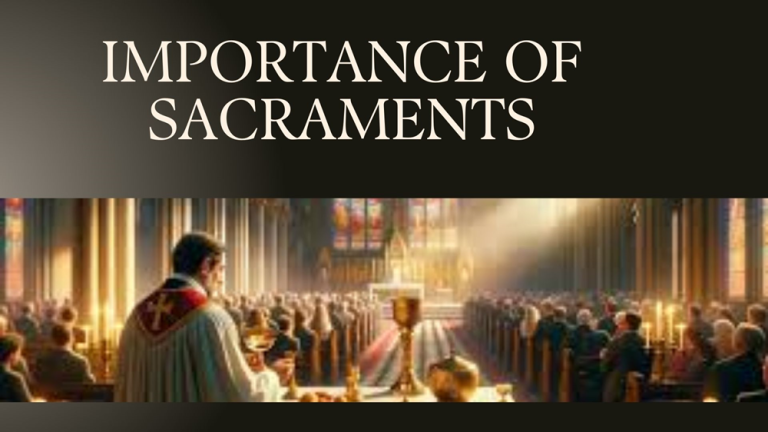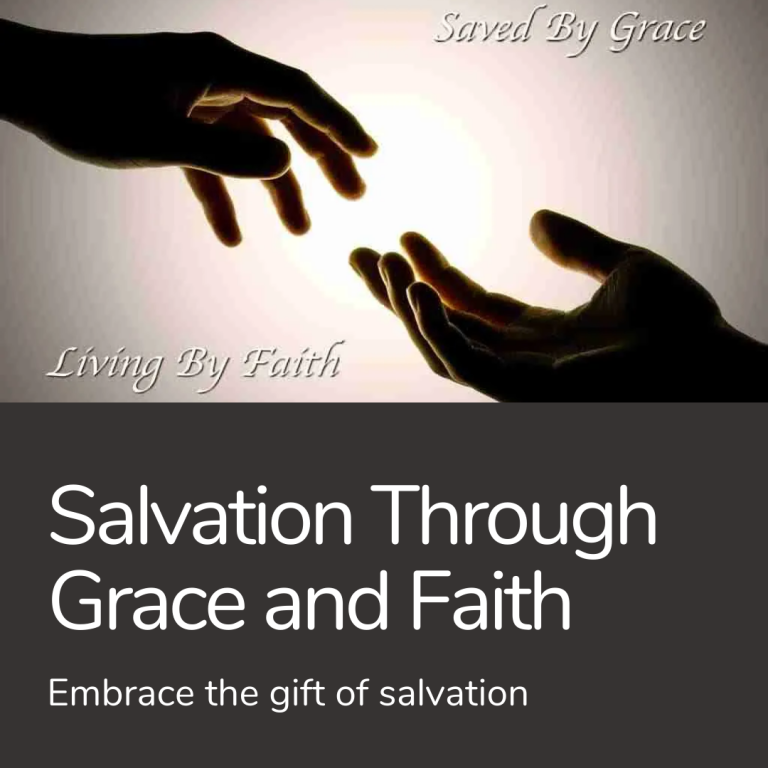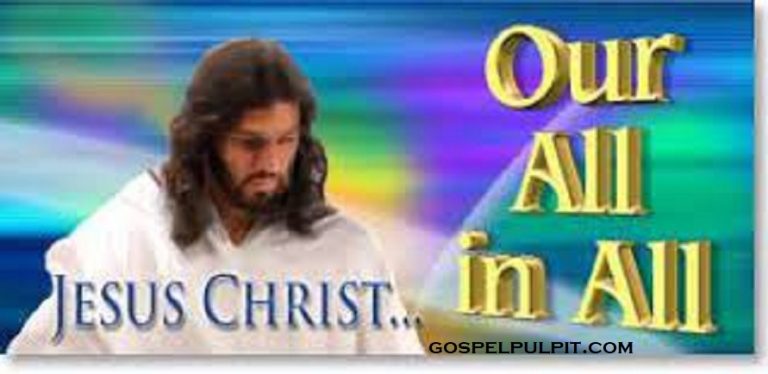Traditional Marriages in Exploring Cultural and Religious Practices – It is important you know that Traditional marriages are a captivating aspect of human civilization, encapsulating the rich tapestry of cultural and religious practices that have shaped societies throughout history. Rooted in ancient traditions and beliefs, these ceremonies serve as a powerful reflection of a community’s values, norms, and cherished customs. Read more about Traditional Marriages in Exploring Cultural and Religious Practices.
So, whether celebrated with grandeur or simplicity, traditional marriages provide a profound insight into the diverse ways in which people across the globe unite in love and commitment. By delving into the fascinating world of exploring cultural and religious practices surrounding marriage, one can gain a deeper appreciation for the intricate tapestry of human existence and the remarkable ways in which love is celebrated and sanctified.
The Focus of Traditional Marriages in Exploring Cultural and Religious Practices
In the realm of exploring cultural and religious practices, traditional marriages stand as a captivating focal point. These sacred unions not only serve as a celebration of love and commitment but also offer a profound glimpse into the customs and beliefs that shape diverse societies around the world. From elaborate ceremonies steeped in centuries-old rituals to more intimate gatherings centered on deep-rooted traditions, traditional marriages provide a lens through which we can understand the values, norms, and identities of different cultures. By examining the unique practices surrounding traditional marriages, we can unravel the intricate threads that connect individuals and communities, and gain a deeper appreciation for the rich tapestry of human existence.
Importance of exploring cultural and religious practices:
Exploring cultural and religious practices is of great importance for several reasons. It allows individuals to gain a deeper understanding and appreciation of diverse cultures and traditions, fostering cultural awareness and sensitivity. Additionally, it helps promote social cohesion and respect among different communities, as people become more knowledgeable about and tolerant of each other’s customs and beliefs. Exploring cultural and religious practices also contributes to preserving and safeguarding intangible cultural heritage, as these practices often carry significant historical, social, and symbolic value. Read more about Traditional Marriages in Exploring Cultural and Religious Practices.
Within the context of traditional marriages, cultural practices play a central role in shaping wedding ceremonies and rituals. They reflect the values, beliefs, and customs of a particular culture or community, and they often hold deep meaning and symbolism for the individuals involved. Some examples of cultural practices in traditional marriages include:
Dowry systems:
In some cultures, the bride’s family provides gifts, money, or property to the groom or his family as a dowry. This practice varies across cultures and can serve as a form of economic exchange, social status indicator, or a way to ensure the bride’s financial security in her new household. Read more about Traditional Marriages in Exploring Cultural and Religious Practices.
Bride price traditions:
In contrast to dowry systems, certain cultures have bride price traditions, where the groom or his family offers goods, money, or livestock to the bride’s family as a symbol of respect and gratitude. This practice often establishes a bond between the families and signifies the groom’s ability to provide for his wife.
Ceremonial rituals and customs:
Traditional marriages are characterized by a variety of ceremonial rituals and customs, such as engagement ceremonies, pre-wedding rituals, or specific blessings or prayers. These rituals vary widely across cultures and can involve symbolic gestures, performances, or religious practices that reflect the heritage and values of the community. Read more about Traditional Marriages in Exploring Cultural and Religious Practices.
Marriage attire and symbols:
Cultural practices often dictate the choice of attire and symbols associated with traditional marriages. This includes specific types of wedding garments, jewelry, or accessories that hold cultural or religious significance. These elements help to visually represent the cultural identity and traditions of the couple.
Traditional roles and responsibilities of the couple:
In many cultures, traditional marriages come with predefined roles and responsibilities for the bride and groom. These roles can include expectations related to gender roles, household duties, familial obligations, and community involvement. Understanding these traditional roles provides insight into the dynamics and societal expectations surrounding marriage in different cultures.
As you can see, exploring and understanding these cultural practices not only enriches our knowledge of the world’s diversity but also allows for greater respect and inclusivity in intercultural interactions. It promotes cultural dialogue, appreciation, and acceptance, contributing to a more harmonious and interconnected global society.
Religious Practices in Traditional Marriages
Religion plays a significant role in shaping marriage ceremonies and practices in many cultures. The influence of religion on traditional marriages varies across different faiths and often encompasses a range of rituals, symbols, and beliefs. Read more about Traditional Marriages in Exploring Cultural and Religious Practices.
Here are examples of religious practices in traditional marriages from various religious traditions:
Christian wedding customs:
Christian wedding ceremonies are often conducted in churches and involve religious rituals such as exchanging vows, receiving blessings from a clergy member, and the symbolic exchange of rings. The ceremony is typically officiated by a priest, minister, or pastor who guides the couple through the sacred union.
Hindu wedding rituals:
Hindu weddings are rich in rituals and symbolism, varying across different regions and communities. Some common practices include the Ganesh Puja (invoking Lord Ganesha for blessings), the Kanyadaan (giving away of the bride by her parents), the Saptapadi (seven sacred vows taken around a fire), and the tying of the mangalsutra (sacred thread) around the bride’s neck.
Muslim marriage traditions:
Islamic wedding ceremonies often take place in a mosque or at the home of the bride’s family. The ceremony, known as the Nikah, involves the recitation of specific prayers, the signing of a marriage contract (Aqd-nikah), and the consent of the couple. The Mahr, a gift from the groom to the bride, is an essential aspect of Muslim marriages. Read more about Traditional Marriages in Exploring Cultural and Religious Practices.
Jewish wedding ceremonies:
Jewish weddings typically involve a series of rituals and blessings. The ceremony, known as the Kiddushin, includes the signing of the Ketubah (marriage contract), the exchange of rings, the recitation of the Sheva Brachot (seven blessings), and the breaking of a glass symbolizing the destruction of the Temple in Jerusalem.
Buddhist marriage customs:
Buddhist marriage ceremonies vary depending on regional customs and cultural influences. These ceremonies often involve chanting sacred texts, offering prayers and blessings, and the exchange of vows and rings. Buddhist marriages emphasize the commitment of the couple to each other and the practice of mindfulness and compassion in their union. Read more about Traditional Marriages in Exploring Cultural and Religious Practices.
So, it is important to note that these examples provide a general overview, and there can be variations within each religious tradition based on regional, cultural, or personal factors. Exploring and understanding the religious practices associated with traditional marriages enables individuals to appreciate the spiritual and cultural significance behind these ceremonies, fostering respect and interfaith understanding.

Significance and Impact of Traditional Marriages
Traditional marriages hold significant importance and have a profound impact on individuals, communities, and societies. They serve as vehicles for preserving cultural heritage, strengthening community bonds, reflecting societal values and norms, and playing a role in identity formation. Let’s explore each of these aspects further:
Preservation of cultural heritage:
Traditional marriages are deeply rooted in cultural traditions, customs, and practices that have been passed down through generations. By upholding and practicing these traditions, traditional marriages contribute to the preservation and transmission of cultural heritage. They serve as living expressions of cultural identity, allowing communities to maintain their unique customs, rituals, and beliefs. Read more about Traditional Marriages in Exploring Cultural and Religious Practices.
Strengthening of community bonds:
Traditional marriages often involve the active participation of family members, friends, and the wider community. These ceremonies provide an opportunity for people to come together, celebrate, and support the couple. Traditional marriages strengthen community bonds by fostering a sense of belonging, intergenerational connections, and shared cultural values. They can promote unity, cooperation, and mutual support within the community.
Reflection of societal values and norms:
Traditional marriages reflect the values, norms, and expectations of a particular society or community. They embody the ideals and principles that society deems important for establishing and maintaining successful marriages and family units. Traditional marriage customs often convey messages about gender roles, family structures, and social responsibilities. They shape and reinforce societal norms regarding marriage, love, commitment, and the roles of individuals within the institution of marriage. Read more about Traditional Marriages in Exploring Cultural and Religious Practices.
Role of traditional marriages in identity formation:
Traditional marriages play a crucial role in the formation and expression of personal and cultural identities. They provide individuals with a sense of belonging, rootedness, and connection to their cultural heritage. By participating in traditional marriage ceremonies, individuals affirm their cultural identity and transmit it to future generations. Traditional marriages often involve the wearing of culturally specific attire, performance of rituals, and adherence to customs that contribute to the construction and affirmation of personal and communal identities. Read more about Traditional Marriages in Exploring Cultural and Religious Practices.
In summary, traditional marriages are significant because they preserve cultural heritage, strengthen community bonds, reflect societal values and norms, and play a role in identity formation. They are more than just ceremonial events; they are powerful expressions of culture, tradition, and social cohesion. By recognizing and valuing the importance of traditional marriages, we can appreciate and celebrate the diverse ways in which different cultures approach and cherish the institution of marriage.
Challenges and Adaptations
Traditional marriages face various challenges in the modern era due to factors such as changing cultural values, interfaith and intercultural marriages, and the evolution of traditional practices. These challenges necessitate adaptations and adjustments within traditional marriage customs. Let’s explore each of these challenges and adaptations:
Modernization and changing cultural values:
The process of modernization brings about shifts in cultural values, attitudes, and lifestyles. Traditional marriage practices may be seen as outdated or incompatible with contemporary societal expectations. As a result, adaptations are often needed to make traditional marriages more relevant and appealing to individuals who have adopted modern lifestyles. This can involve incorporating elements of modernity into traditional ceremonies, redefining gender roles and expectations, and allowing for greater individual choice and autonomy within the marriage process. Read more about Traditional Marriages in Exploring Cultural and Religious Practices.
Interfaith and intercultural marriages:
In an increasingly interconnected world, interfaith and intercultural marriages have become more common. These unions bring together individuals from different religious, cultural, and ethnic backgrounds. Such marriages require adaptations in traditional practices to accommodate and respect the diversity of beliefs and customs. This can involve creating hybrid ceremonies that incorporate elements from both partners’ traditions, promoting dialogue and understanding between different religious and cultural communities, and finding common ground that allows for the harmonious blending of diverse practices.
Evolution of traditional practices:
Traditional marriage practices are not static and unchanging. They evolve over time in response to social, economic, and cultural transformations. As societies progress and develop, traditional practices may undergo modifications to suit contemporary needs and aspirations. This can include reinterpreting rituals, revising customary roles and responsibilities, and adapting to new social realities, such as changing gender dynamics and expectations. It is important for communities to engage in ongoing conversations and negotiations about the evolution of their traditional practices, ensuring that they remain meaningful and relevant while honoring their cultural heritage. Check out Traditional Marriages in Exploring Cultural and Religious Practices.
Now, you can see why adaptations in traditional marriages are essential for their continued relevance and sustainability. By addressing the challenges posed by modernization, interfaith and intercultural dynamics, and evolving societal needs, traditional marriage practices can continue to serve as a bridge between the past and the present, fostering cultural continuity and promoting understanding and inclusivity in an ever-changing world. It requires a balance between preserving cultural traditions and embracing the values and aspirations of contemporary society.
Concluding:
In conclusion, exploring traditional marriages and understanding their cultural and religious practices is of utmost importance. By delving into these customs, we gain insights into the diversity and richness of human cultures and traditions. Traditional marriages serve as significant gateways to preserving cultural heritage, strengthening community bonds, reflecting societal values, and shaping individual and communal identities. Check out Traditional Marriages in Exploring Cultural and Religious Practices.
Through the exploration of traditional marriages, we come to appreciate the deep-rooted traditions, customs, and beliefs that have been passed down through generations. It allows us to acknowledge and celebrate the diverse ways in which different cultures approach and cherish the institution of marriage. By recognizing and valuing these practices, we foster cultural awareness, sensitivity, and respect.
Therefore, it is crucial to respect and appreciate different traditions and practices associated with traditional marriages. Each culture and religion brings its unique set of values, customs, and rituals to the concept of marriage. Embracing this diversity enriches our understanding of the world and promotes harmonious coexistence among individuals from different backgrounds.
And, as we navigate a rapidly changing world, it is important to adapt traditional marriage practices to meet the evolving needs and aspirations of individuals and communities. This adaptation should be done with care, preserving the essence and cultural significance of these practices while ensuring their relevance and inclusivity. Check out Traditional Marriages in Exploring Cultural and Religious Practices.
In our pursuit of understanding traditional marriages, let us approach them with an open mind and a willingness to learn from one another. By embracing and respecting the diverse traditions that shape traditional marriages, we contribute to preserving cultural heritage, strengthening community ties, and promoting mutual understanding and respect in our interconnected global society.
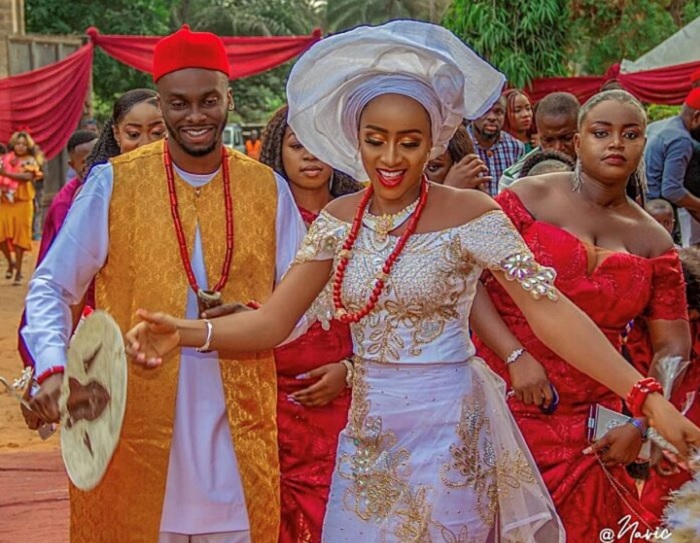
Related Topics:
Here are other matters relating to traditional marriages. A thorough study of it will help you a lot.
- What is traditional marriage practice?
- What are the types of traditional marriage?
Note, also that traditional marriage practices vary greatly across cultures and regions. Here are some common aspects and types of traditional marriage practices:
Arranged Marriages:
In many traditional societies, marriages are arranged by families or matchmakers rather than based solely on individual choice. The families of the bride and groom take an active role in finding a suitable partner for their child. Check out Traditional Marriages in Exploring Cultural and Religious Practices.
Dowry and Bride Price:
Some traditional marriages involve the exchange of goods or money between the families of the bride and groom. A dowry refers to the transfer of assets, such as money, jewelry, or property, from the bride’s family to the groom’s family. Conversely, a bride price involves the groom or his family paying a sum of money or valuable items to the bride’s family.
Religious or Ceremonial Customs:
Many traditional marriages incorporate religious or ceremonial practices specific to the culture or religion of the couple. These rituals often symbolize the union of two individuals and their families, and they can include prayers, blessings, vows, and the involvement of religious leaders.
Wedding Attire and Accessories:
Traditional marriages often involve specific attire and accessories that hold cultural significance. These may include traditional wedding dresses, ceremonial outfits, jewelry, headpieces, or other cultural adornments that represent the heritage and customs of the couple’s community.
Rituals and Customs:
Various rituals and customs are performed during traditional marriages. These can include engagement ceremonies, pre-wedding rituals, wedding processions, exchange of vows and rings, blessings from elders, traditional dances, feasts, and post-wedding celebrations. Check out Traditional Marriages in Exploring Cultural and Religious Practices.
Polygamous and Polyandrous Marriages:
Some traditional cultures allow or practice polygamy (one man having multiple wives) or polyandry (one woman having multiple husbands). These types of marriages are often based on cultural or religious beliefs and have specific rules and dynamics within the community.
So, it’s important to note that traditional marriage practices are diverse and can vary significantly from culture to culture. The above examples provide a general overview, but specific traditions and customs may differ widely depending on the region, religion, and cultural context.
Further Related Topics: Traditional Marriages in Exploring Cultural and Religious Practices.
- What is the meaning of traditional married?
- What is the traditional process for marriage in Igbo culture?
The meaning of traditional marriage can vary depending on the cultural context. Generally, a traditional marriage refers to a marriage ceremony and union that follows the customs, rituals, and practices of a specific culture or community. It typically involves adherence to traditional values, roles, and expectations, as well as the incorporation of cultural symbols and practices into the wedding ceremony and marital life.
In Igbo culture, which is prevalent among the Igbo people of Nigeria, traditional marriage is known as “Igba-Nkwu” or “Igba-Nkwu Nwanyi,” which translates to “wine carrying” or “wine-carrying ceremony” in English. The traditional process for marriage in Igbo culture involves several important steps:
Introduction and Inquiry:
The groom’s family initiates the marriage process by sending representatives to the bride’s family to express their interest in marrying their daughter. This visit is called “ime ego” (bride price inquiry), during which the groom’s family presents gifts, including kola nuts and palm wine, to the bride’s family. Check out Traditional Marriages in Exploring Cultural and Religious Practices.
Family Introduction:
If the bride’s family accepts the groom’s proposal, a formal introduction ceremony takes place. The groom, accompanied by his family and close relatives, visits the bride’s family to formally introduce themselves and discuss the marriage intentions. The families exchange pleasantries, and the groom’s family presents gifts, such as drinks, clothes, and sometimes money, to the bride’s family.
Engagement:
Following the successful family introduction, the engagement ceremony known as “Iku Aka” or “Iju Ese” is held. During this event, the groom presents various gifts, including the engagement ring, clothing, jewelry, and other items, to the bride. This serves as a public declaration of their intention to marry. Read more from Traditional Marriages in Exploring Cultural and Religious Practices.
Wine-Carrying Ceremony:
The wine-carrying ceremony is the highlight of the Igbo traditional marriage. It involves the groom, accompanied by his family and friends, going to the bride’s family home with drinks, typically palm wine, which symbolizes joy, fertility, and good fortune. The groom is expected to carry a cup of palm wine to the bride’s parents, and if they accept it, it signifies their acceptance of him as their son-in-law.
Exchange of Vows:
The couple exchanges vows and makes promises to each other in the presence of their families, witnesses, and community members. These vows often emphasize love, respect, fidelity, and support for each other.
Feasting and Celebrations:
Following the wine-carrying ceremony, there is a celebration with feasting, music, dancing, and merriment. Friends, family, and community members come together to celebrate the union of the couple. This is good for Traditional Marriages in Exploring Cultural and Religious Practices.
It’s important to note that Igbo marriage customs can vary slightly among different communities and families, and modern influences may also impact certain aspects of the traditional process.
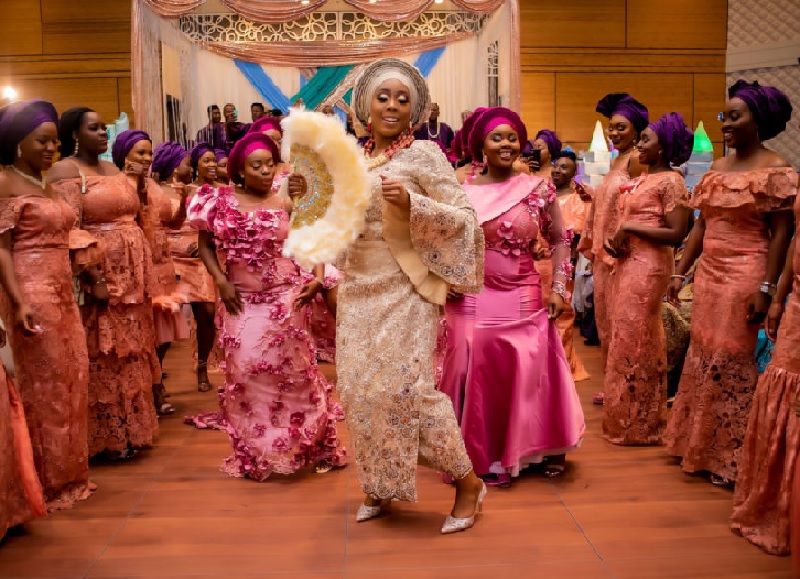
Read Also for Traditional Marriages in Exploring Cultural and Religious Practices.
- This is What Saith the scriptures?
- Standing on the Promises of God
- Gospel Pulpit: See how life flows out of it
- Gospel Summit: This is how it works
- business start-ups need
- Professional and career tips
- Recruitment needs or
- business management consultancy
- See Why Teenage Marriages Fail
Concluding on Traditional Marriages in Exploring Cultural and Religious Practices.
In conclusion, the topic of traditional marriages provides a fascinating lens through which to explore the rich tapestry of cultural and religious practices around the world. By examining the customs, rituals, and beliefs associated with traditional marriages, we gain a deeper understanding of the values, traditions, and legacies that shape our diverse societies.
Whether it is the colorful ceremonies of India, the sacred unions of indigenous tribes, or the solemn vows exchanged in churches, traditional marriages reflect the beauty and complexity of human connections and serve as a testament to the enduring power of love, commitment, and the human spirit.
As we continue to appreciate and respect the diverse traditions surrounding marriage, may we find common ground in celebrating the universal desire for love, happiness, and lifelong partnership? Now bookmark Traditional Marriages in Exploring Cultural and Religious Practices. Share and like us on our social media handles.

